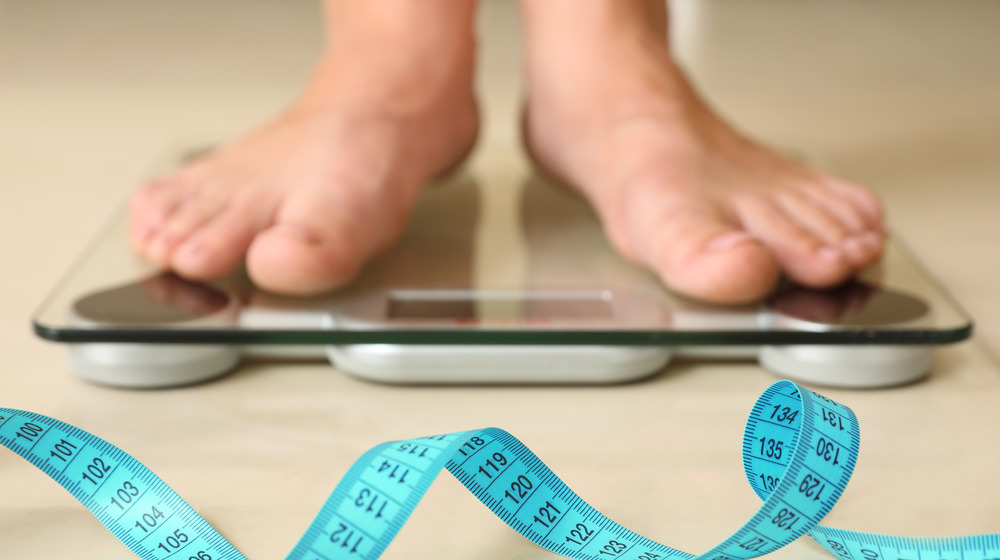The Real Difference Between Weight Loss And Fat Loss
When talking about losing weight, most people are referring to a desire to lose fat. However, fat loss and weight loss are technically two very different things. Weight loss refers to anything that drops the number on the scale, and can be as simple as the difference between measuring your weight before going to the bathroom and waiting until after you've used the toilet to step on the scale. Fat loss, on the other hand, is specific — and most people would be well-served to understand the difference.
Weight loss can come from losing water (through sweat or urine), waste products (through feces), or fat or muscle loss (via Medical News Today and Healthline). Throughout the day, you'll gain or lose weight as you eat and drink, then sweat or use the bathroom. That's why throughout the course of the day, you may notice that the number on the scale can drastically fluctuate. (It also depends on what you're wearing on the scale when you weigh in, of course).
Unfortunately, many fad diets and weight loss programs promising quick fixes take advantage of the initial water weight losses that most of these restrictive eating programs can cause. This can seem like a dramatic, rapid fat loss but in actuality, are simply pounds of water being shed (via Burn Boot Camp).
How should you measure fat loss?
Losing muscle is another problem in the quest for rapid weight loss. As you shift to all cardio and skip strength training, or eat a restricted diet that cuts calories, your body will begin to let go of muscle. So you might drop a few pounds — but that's not a good thing. Losing muscle can actually slow your metabolism, and a healthy body needs muscle in order to function at its peak (via Men's Journal).
In order to lose fat, rather than muscle or water, most experts agree that it's best to not weigh yourself constantly — certainly not multiple times each day. Your focus, if you are trying to drop weight, should be on losing fat in a slow, sustainable way. And that means tracking weight isn't the perfect solution when it comes to checking on your progress. Using a scale that measures body fat percentage using electrical currents, skin calipers, or getting professional testing done regularly are going to be better indicators of fat loss.


